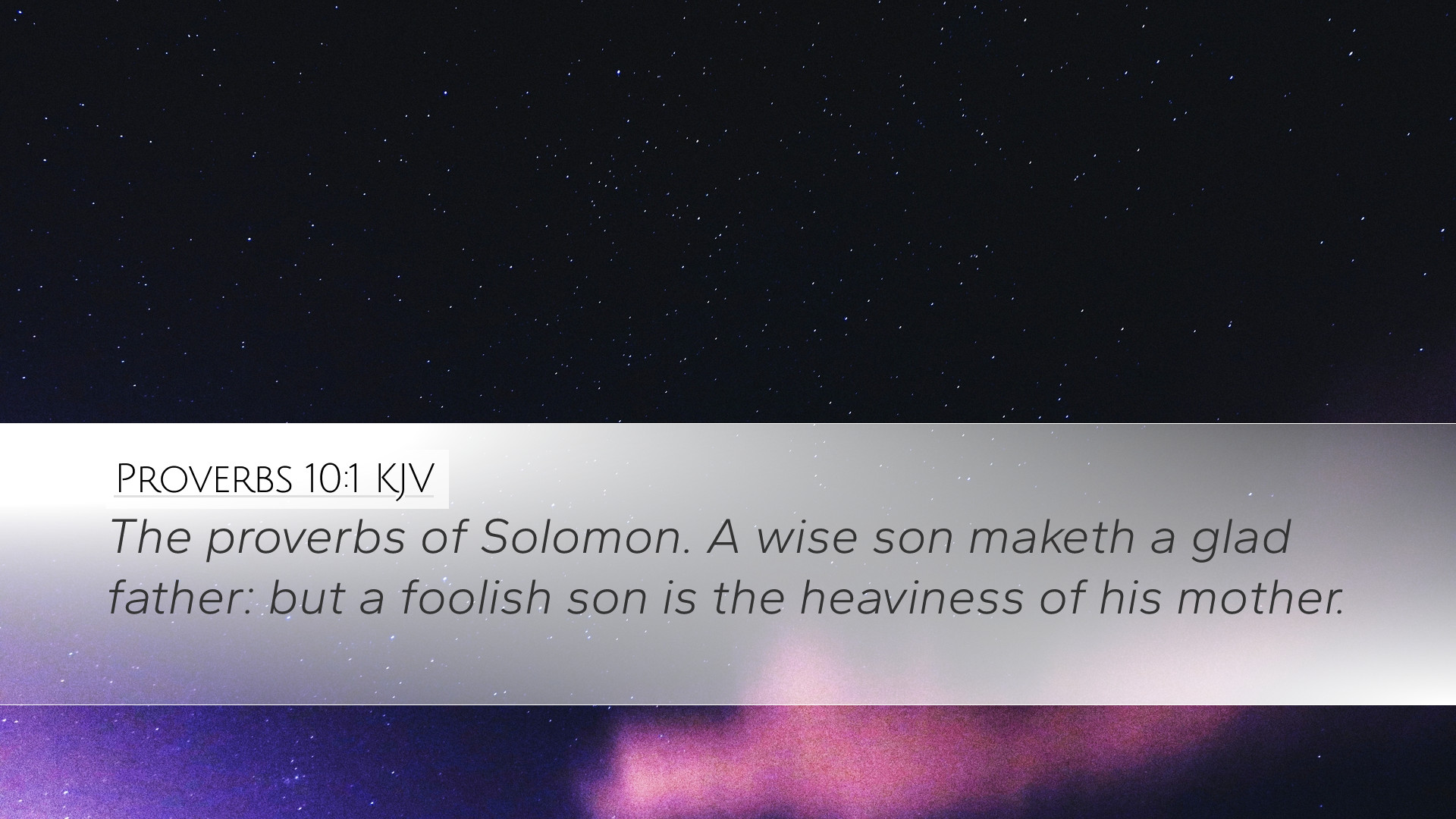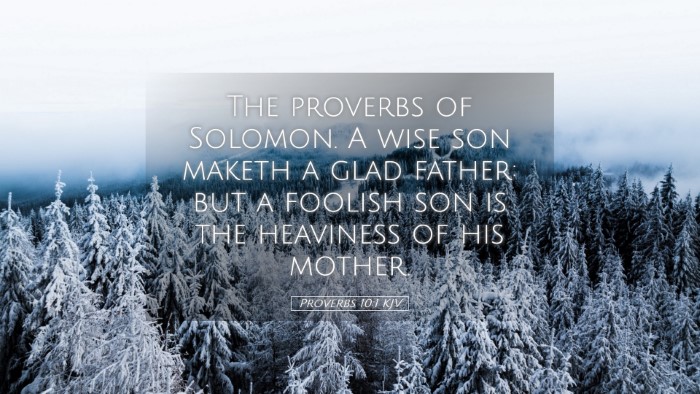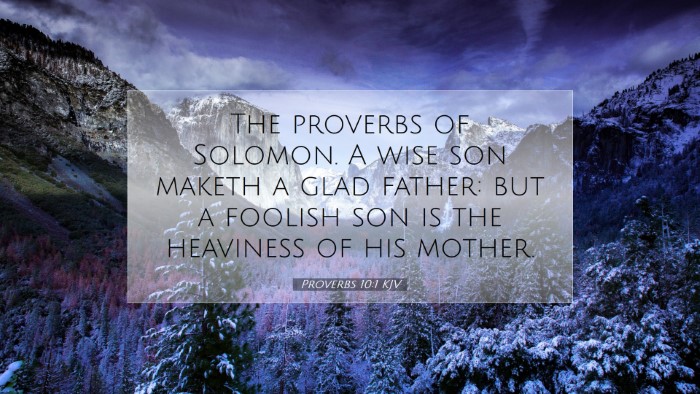Proverbs 10:1 Commentary
Bible Verse: "The proverbs of Solomon: A wise son makes a glad father, but a foolish son is a sorrow to his mother."
Introduction
This verse encapsulates a fundamental principle regarding the relationship between parents and their children, focusing on the emotional responses that stem from the actions and choices of the offspring. In essence, the behavior of children reflects back on their parents, creating a cycle of joy and sorrow based on wisdom or folly.
Wisdom vs. Folly
Matthew Henry, in his commentary, underscores the importance of wisdom as a life-guiding attribute. A wise son not only contributes to familial joy but also embodies the virtues cherished by parental figures. In contrast, a foolish son brings grief, representing a deviation from these virtues.
Albert Barnes emphasizes the dual nature of this wisdom and folly. He notes that wisdom is not merely an intellectual attainment but a practical application of knowledge that brings delight and prosperity to both the individual and their family.
Adam Clarke elaborates on this by identifying how the Hebrew terms reflect deeper meanings. The "wise son" indicates someone who honors parents and adheres to moral principles, whereas the "foolish son" is a representation of rebellion and choices that lead to lamentation.
Parental Joy and Grief
The emotional themes of joy and sorrow are central to understanding this verse. A wise son brings pride and happiness to his father, symbolizing a legacy of righteousness that the father desires to impart. Matthew Henry suggests that this joy is not just personal; it also serves as a reflection of the father's stewardship and guidance.
In contrast, the folly of a child brings a deep sense of disappointment, particularly emphasized for the mother in this verse. Albert Barnes points out that mothers often bear the emotional weight of parenting deeply, and this dynamic can lead to grievous consequences for them, showcasing the broader impact of a child's choices on family harmony.
Implications for Families
This proverb challenges parents to cultivate wisdom within their children, highlighting their role as educators and role models. It is imperative for parents to provide a nurturing environment where wisdom can flourish, as emphasized by Adam Clarke, who stated that the spiritual and moral development of children must be prioritized.
In addition, this verse serves as a reminder for children and youth regarding their responsibilities. The choices they make not only shape their futures but also heavily influence the emotional and spiritual welfare of their parents. Matthew Henry notes that children should recognize their power in fostering familial joy or sorrow through their decisions.
The Broader Context of Proverbs
This verse is part of the larger body of wisdom literature contained within the book of Proverbs, which frequently contrasts wisdom with folly. According to Barnes, these contrasts serve to guide readers in making ethical decisions that align with God’s principles.
Clarke mentions that the Proverbs collectively provide insights into the nature of God’s created order, illustrating how wisdom aligns with divine truth. Thus, this specific proverb contrasts the broader themes seen throughout the book, emphasizing both individual responsibility and familial impact.
Conclusion
Proverbs 10:1 serves as a poignant reminder of the deep connections between parental aspirations and the choices of children. The teachings of Matthew Henry, Albert Barnes, and Adam Clarke collectively illustrate not just the joy and sorrow experienced by parents but also the moral imperatives placed upon both parents and children. This verse calls for reflection on one's actions, encouraging a life of wisdom that honors family and aligns with divine intention.


